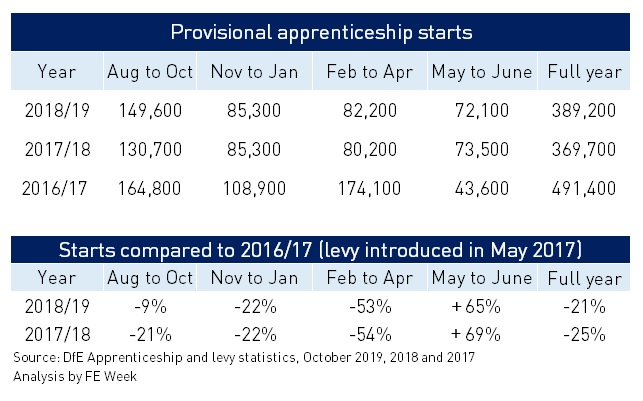A provider of British Sign Language qualifications and an engineering awarding organisation are among the winners of this year’s Federation of Awarding Bodies’ awards.
FAB’s fifth celebration of the awarding and assessment sector was a glitzy ceremony in Leicester, attended by over 230 experts in awarding and assessment.
Chief executive of FAB Tom Bewick said the membership organisation received a “record number” of entries to the awards this year and the standard was “exceptionally high”.
“The FAB Awards is an opportunity for the industry to come together to celebrate success and share good practice and all of the winners were deserving of their award,” he added.
The panel of judges included UCL Institute of Education professor and former Association of Colleges chief executive Martin Doel, head of apprenticeships and HR business partner for Coca-Cola European Partners Sharon Blyfield, and innovation and human potential consultant and transformation coach Nicola Darke.
The winner of Awarding Organisation of the Year was Signature, a provider of British Sign Language and deaf and deafblind qualifications.
The judges said this was for providing “highly valuable and socially-connective qualifications with an innovative approach and a distinctive assessment methodology”, which made a “real difference not only to a defined community, but to help integrate different communities”.
The award for Qualification of the Year has gone to Excellence, Achievement & Learning (EAL), which last week also won its bid to develop, deliver and award the second wave of T-levels.
EAL won for its level 3 award in the Requirements of Fire Detection and Fire Alarm Systems for Buildings. The judges said this qualification “goes towards saving lives” and is “designed to remove the barriers to take-up”.
The engineering and advanced manufacturing awarding organisation also won Innovation of the Year for Engineering Talent, a means of accessing training resources online.
“It enables learners to navigate their way through the industry end-to-end, making it a more effective way to engage, educate and get employed,” judges said.
The winners of the Collaboration of the Year award were Association of Business Executives and United Nations Educational Scientific and Cultural Organisation.
The judging panel picked them for “assisting learners to gain confidence and contribute to the economy”.
Helen Bull won Learner of the Year with her IQL UK qualification for her “outstanding achievement as a learner and for demonstrating strength and determination to continue with her qualification while paying it forward to support others”.
After being nominated by the Chartered Institute of Housing, Marie Porter from Phoenix Community Housing was awarded for Outstanding Contribution of the Year.
She impressed judges “by changing lives and empowering others to do the same”.
And exporter of the year was awarded to NCC Education after it adapted its programmes to the relevant markets “while still maintaining quality and removing the stigma around online learning”.
These seven winners were selected from 34 finalists across all categories.
The full list of winners:
- Awarding Organisation of the Year – Signature
- Qualification of the year – Excellence, Achievement & Learning Limited (EAL) with EAL Level 3 Award in the Requirements of Fire Detection and Fire Alarm Systems for Buildings BS 5839-1:2017
- Collaboration of the Year – Association of Business Executives (ABE) with United Nations Educational Scientific and Cultural Organisation (UNESCO)
- Learner of the Year – Helen Bull, with an IQL UK qualification
- Outstanding Contribution of the Year – Marie Porter from Phoenix Community Housing, nominated by the Chartered Institute of Housing
- Innovation of the year – Excellence, Achievement & Learning Limited (EAL), with Engineering Talent
- Exporter of the year – NCC Education

